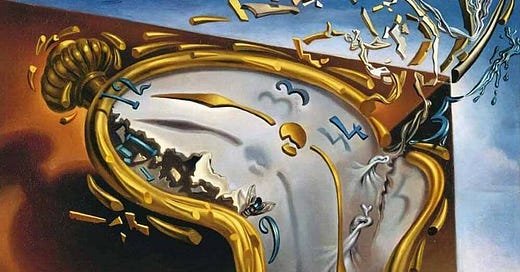What are your thoughts on time, specifically managing it? Do you feel that you have enough time to accomplish all the things you need to, let alone want to? Do you have regrets about how you use your time? Are you frustrated by the demands others place on your time? You are not alone.
We live in an era where everything is rushed, we are ridiculously over-scheduled and are expected to deliver results on-demand. Our modern life seems to be a mad and maddening dash, but that seems to be same as it ever was. Even before clocks were invented, people complained about conflicting calls on their time and attention.
The emperor Marcus Aurelius, (as opposed to the gladiator Marcus Aurelius, portrayed by the actor Russell Crowe) was a scholar, general and a man of action. A renaissance man before the Renaissance, he was considered one of the five “good” emperors of Rome, and presided over the last era of Roman dominance and peace.
He was also a philosopher and one of the adherents of Stoicism, an early school of philosophy dealing with ethics, logic, and living a rational, productive life. He was not a micro-manager, it seems, and advised on focusing oneself in the present.
“You're better off not giving the small things more time than they deserve. Forget everything else. Keep hold of this alone and remember it: Each of us lives only now, this brief instant. The rest has been lived already, or is impossible to see.”
Another Stoic, Seneca, wrote that it’s not only that we have a short amount of time, but also that we waste much of it.
“People are frugal in guarding their personal property; but as soon as it comes to squandering time they are most wasteful of the one thing in which it is right to be stingy.”
Fortune magazine, in this story in its most recent issue, wrote:
People aren’t just quitting their jobs, they’re rethinking what they want out of life. What people are resigning from is a culture of “workism”: the idea that we’re defined primarily by our work, and everything else—i.e. life—must fit into the increasingly small space that is left. And they are realizing how backwards our thinking about work-life has been.
I am not so sure that Fortune has it quite right. What I have heard from friends, peers and others is that the pandemic brought to the fore a realization that, for many, it was not about wasting time, per se, but that they were not in control of it. Many workplaces demand primacy - first call - on your time and attention, no matter what. You have to be productive, after all. Thus, the workday became viewed as a form of organizational tyranny.
I am more fortunate than many in that my escape from NY allowed me greater flexibility and control over how I spent my time than many, if not most, working folks have. Even in my latter corporate gigs, I had significant freedom to create a schedule that worked for me, at no detriment to my ability to hit deadlines.
Pre-pandemic, we continued to be governed by an hourly-based work management mindset even though we have moved largely away from the physical and mechanical production economy to a knowledge and serviced based one.
Did the organizational hive-mind have it wrong? The Federal Reserve says, mmm-yeah. Since the publication of that Fed article in 2021, labor productivity has continued to grow.
Covid forced organizations to become more flexible in how work was done, and the redesigned processes - in office settings at least - have restored some control back to the individual. As the Boston Consulting Group put it, the pandemic unlocked the actual content of work. Turns out that productive people are mostly self-motivating and can and will be productive when left on their own to accomplish their tasks.
Seems that we waste(d) a lot of time in the office. Time that could have been used to provide the balance workers need to feel content and satisfied across the whole spectrum of their lives.
The Stoics thought that the ‘get it done now’ lifestyle was the path to deep discontent, and unnatural.
“Nothing great is created suddenly, any more than a bunch of grapes or a fig. If you tell me that you desire a fig, I answer you that there must be time. Let it first blossom, then bear fruit, then ripen.”— Epictetus
A couple of millennia after the Stoics, the progressive rock philosophers Pink Floyd sang:
“Every year is getting shorter, never seem to find the time
Plans that either come to naught or half a page of scribbled lines
Hanging on in quiet desperation is the English way
The time is gone, the song is over, thought I'd something more to say…”
Be the master of your time. Guard it as if it were your most valuable possession. It is. The post is over; I’ve nothing more to say…





Jim's favorite quote--mostly when I'm asking him to run errands--is from Carl Sandburg: "Time is the coin of your life. It is the only coin you have, and only you can determine how it will be spent. Be careful lest you let other people spend it for you."